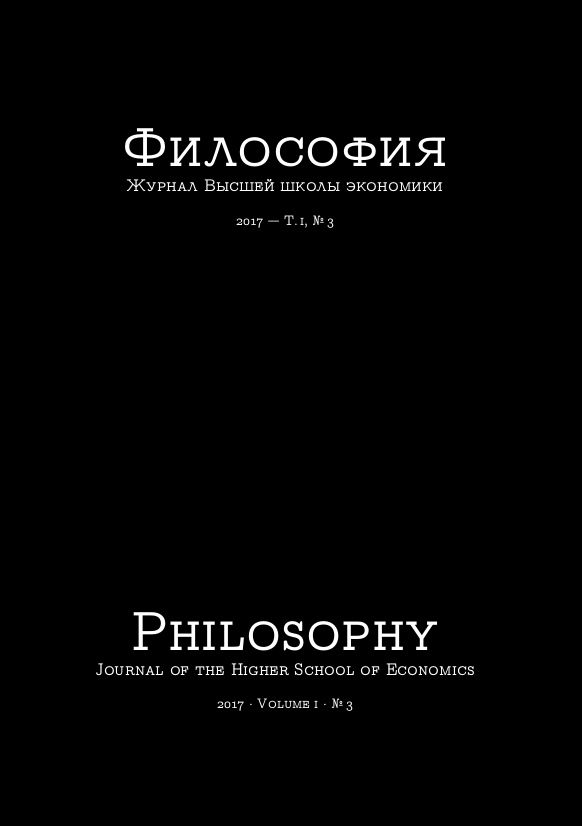Negative Epistemology in the Greek Aristotelianism of the Seventeenth Century
Abstract
The article studies the project of critical epistemology on the periphery of Europe, which is considered as an alternative to the project of critical ontology in the center of Europe. It is proved that this critical, or negative epistemology was based on two presumptions: on the concept of power as not decision-making, but as making control over the variety of decisions, and on the representation of speech not as a statement but as an establishment of the boundaries of consciousness. These presumptions date back to the unique social and political situation in the Orthodox world, which transformed the conventions of classical rhetoric into epistemological tools. In the struggle of various political forces to master this instrumentation, the concept of power as internal speech or intellectual attitude in relation to the diversity of events was developed, and the realization of power was understood as negative epistemology, allowing facts to be established not as simple events but as true and right events. The classical concepts of Aristotle were turned into topoi, describing reality not as an aggregate of ontological statuses, but as a set of epistemological problems. The study of this phenomenon based on the works by Theophilos Corydalleus and Gerasimos Vlakhos allows to explain common origins of the key problems of Eastern European religious philosophy (such as iconicity, personalism, and philosophy of the Divine name), which are otherwise perceived as fragmented and anomalous.






